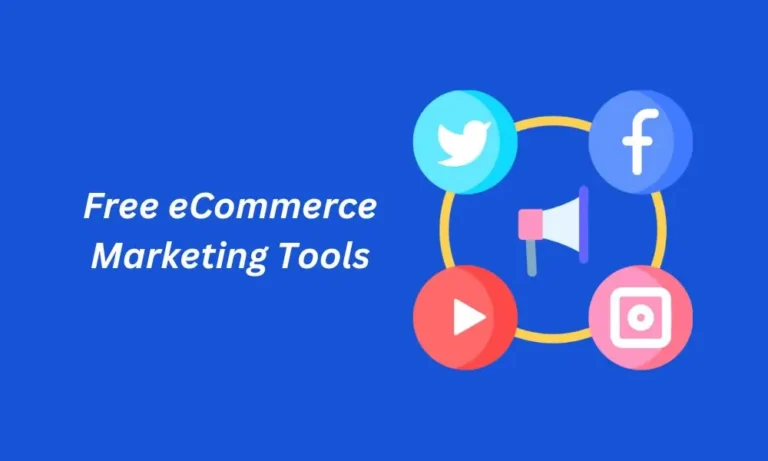Do you want to learn about search engine optimization in this? Learn how to boost your website’s visibility, engage your audience, and climb the search engine rankings.
Introduction
In the digital age, having a strong online presence is crucial for businesses and individuals alike. Whether you run a blog, an e-commerce store, or a corporate website, Search Engine Optimization (SEO) is the key to standing out in the vast landscape of the internet.
In this article, we will delve deep into the world of search engine optimization, providing you with the knowledge and strategies to optimize your online content effectively.
Table of Contents
The Fundamentals of Search Engine Optimization
The fundamentals of Search Engine Optimization (SEO) are essential for enhancing online visibility.
SEO involves optimizing content to make it appealing to search engines like Google.
This process, rooted in effective keyword usage and high-quality content creation, enables better rankings, increased traffic, and improved brand credibility in the digital landscape.
What Is SEO?

SEO, or Search Engine Optimization, is the process of enhancing the visibility and ranking of a website on search engine results pages (SERPs).
It involves a variety of techniques and strategies aimed at making your content more appealing to search engines like Google, Bing, and Yahoo.
Why Is SEO Important?
In today’s competitive online environment, being on the first page of search results can make or break your online success.
Users tend to click on the top results, and SEO is the key to getting your website there.
It helps drive organic traffic, increase brand credibility, and boost conversions.
The Role of Keywords
Keywords are the foundation of SEO. They are the words and phrases that users type into search engines when looking for information.
Proper keyword research and usage are essential for optimizing your content effectively.
On-Page SEO Techniques
On-Page SEO techniques are integral for optimizing web content.
They encompass practices like creating high-quality, informative content, crafting engaging title tags and meta descriptions, structuring content with heading tags, and strategically incorporating internal and external links.
These strategies collectively enhance a webpage’s visibility and user experience.
Quality Content Creation
Content is king in the world of SEO. Creating high-quality, informative, and engaging content that addresses the needs of your target audience is vital.
Remember, search engines reward content that provides value to users.
Title Tags and Meta Descriptions
Craft compelling title tags and meta descriptions that include your target keywords.
These elements appear in search results and can significantly impact click-through rates.
Heading Tags
Use heading tags (H1, H2, H3, etc.) to structure your content. These tags not only make your content more readable but also help search engines understand its hierarchy.
Internal and External Linking
Incorporate both internal links (links to other pages on your website) and external links (links to authoritative websites) to provide additional context and value to your readers.
Off-Page SEO Techniques
Off-Page SEO techniques play a pivotal role in improving a website’s authority and trustworthiness.
These strategies primarily involve building a strong backlink profile through quality, relevant backlinks from reputable sources.
Additionally, fostering social signals through active engagement on social media platforms indirectly boosts a site’s online visibility and credibility.
Backlinks
Quality backlinks from reputable websites can boost your website’s authority and trustworthiness in the eyes of search engines. Building a strong backlink profile is a critical off-page SEO strategy.
Social Signals
Engagement on social media platforms can indirectly impact your SEO. A strong social presence can drive traffic to your site and increase its visibility.
Leveraging SEO for Success
Now that you’ve gained a comprehensive understanding of SEO, it’s time to put this knowledge into practice and start reaping the benefits.
Here are some actionable tips to help you leverage SEO for success:
1. Regularly Update Your Content
Search engines love fresh, relevant content. Periodically update your website with new articles, blog posts, or product descriptions.
This not only keeps your audience engaged but also signals to search engines that your site is active and valuable.
2. Optimize for Mobile
With the increasing use of smartphones, mobile optimization is no longer optional.
Ensure that your website is responsive and provides a seamless user experience on all devices.
Google prioritizes mobile-friendly sites in its rankings.
3. Monitor Your Analytics
Utilize tools like Google Analytics to track your website’s performance.
Analyze metrics such as traffic sources, bounce rates, and conversion rates.
These insights can help you refine your SEO strategy and identify areas for improvement.
4. Build a Strong Backlink Profile
Quality backlinks from reputable websites are like votes of confidence in the eyes of search engines.
Develop a backlink strategy that focuses on earning links from authoritative sources within your industry.
5. Create Engaging Multimedia
Incorporate multimedia elements such as images, videos, infographics, and podcasts into your content.
Not only does this enhance the user experience, but it can also increase the time users spend on your site—a factor that search engines consider.
6. Embrace Social Media
Social signals play a role in SEO indirectly. Active social media profiles can drive traffic to your website and increase brand visibility.
Share your content on social platforms to extend its reach.
7. Stay Informed and Adapt
The world of SEO is constantly evolving. Stay up-to-date with industry news, algorithm updates, and best practices.
Be prepared to adapt your SEO strategy to remain competitive.
8. Conduct Competitor Analysis
Identify your competitors and analyze their SEO strategies. What keywords are they targeting? What type of content are they creating?
Learning from your competitors can provide valuable insights into your own SEO efforts.
Incorporate these tips into your SEO strategy, and you’ll be well on your way to improving your online visibility and achieving your goals.
Final Thought
In conclusion, Search Engine Optimization is a multifaceted discipline that can significantly impact your online success.
By implementing the strategies and techniques outlined in this article, you have the tools to enhance your website’s visibility, engage your audience, and climb the ranks of search engine results pages.
Remember that SEO is not a one-time effort but an ongoing process. Consistency and dedication are key to achieving and maintaining high rankings.
Keep learning, adapting, and optimizing, and you’ll unlock the full potential of SEO for your online endeavors.
Frequently Asked Questions
Q: What is the ideal keyword density for SEO?
A: Keyword density is the ratio of keywords to the total word count on a page. The ideal keyword density varies but generally falls between 1% and 2%. However, focus on creating natural, reader-friendly content rather than obsessing over keyword density.
Q: How long does it take to see results from SEO efforts?
A: SEO is a long-term strategy, and the timeline for seeing results can vary. It may take several months to a year before significant improvements in rankings and traffic are noticeable.
Q: Can I do SEO on my own, or should I hire a professional?
A: While basic SEO can be done independently, hiring an experienced SEO professional can lead to more effective and efficient results. SEO experts stay updated with the latest trends and can tailor strategies to your specific needs.
Q: What is the importance of mobile optimization in SEO?
A: With the increasing use of mobile devices, mobile optimization is crucial for SEO. Google prioritizes mobile-friendly websites in its rankings, making it essential to ensure your site is responsive and user-friendly on all devices.
Q: Is SEO a one-time effort, or does it require ongoing maintenance?
A: SEO is an ongoing process. Search engines frequently update their algorithms, and competitors may also be optimizing their websites. Regularly updating and improving your content is essential to maintain and improve your rankings.
Q: How can I measure the success of my SEO efforts?
A: You can measure SEO success through various metrics, including organic traffic, keyword rankings, conversion rates, and engagement. Tools like Google Analytics and Google Search Console are invaluable for tracking these metrics.




